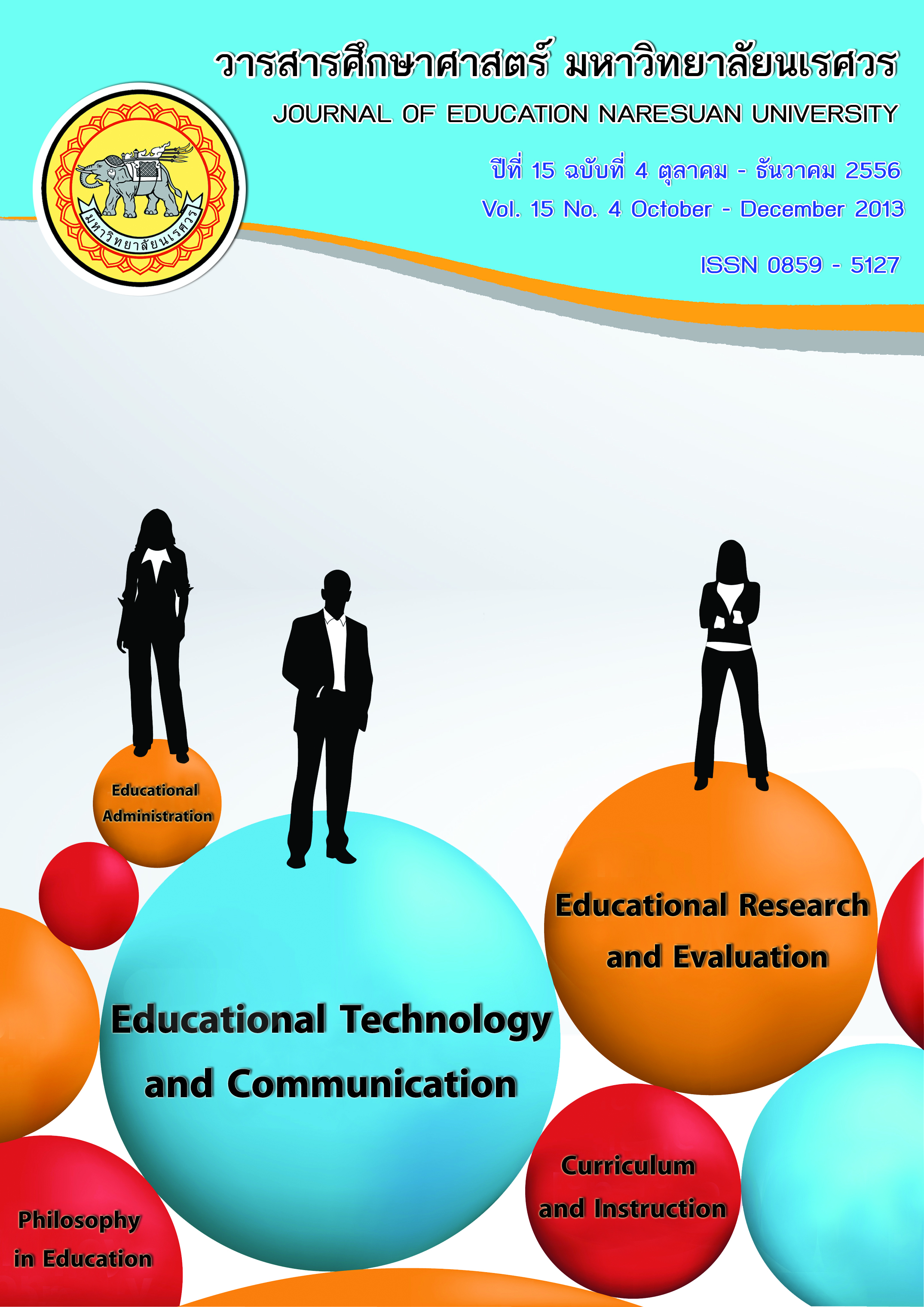การแนะแนวอาชีพตามหลักปรัชญาเศรษฐกิจพอเพียง
Main Article Content
Abstract
บทคัดย่อ
บทความเรื่อง “การแนะแนวอาชีพตามหลักปรัชญาเศรษฐกิจพอเพียง” มีวัตถุประสงค์เพื่อเป็นแนวทางในการนำหลักปรัชญาเศรษฐกิจพอเพียงมาเชื่อมโยงประสานเข้ากับหลักการแนะแนวอาชีพ และเพื่อปลูกฝังเจตคติ ค่านิยมที่พึงประสงค์ต่อการประกอบอาชีพให้แก่เด็กและเยาวชนในสถานศึกษา โดยยึดหลักการดำเนินชีวิตบนทางสายกลาง คือมีความพอประมาณ มีเหตุผล มีภูมิคุ้มกันที่พัฒนาขึ้นจากความรู้ คุณธรรม ซึ่งจะก่อให้เกิดความสมดุลในชีวิต พร้อมรับต่อการเปลี่ยนแปลงทั้งด้านจิตใจ สังคม วัฒนธรรมและเศรษฐกิจ สถานศึกษา สามารถดำเนินการได้ทั้งระดับนโยบายคือ จัดการศึกษาเพื่องานอาชีพตามหลักปรัชญาเศรษฐกิจพอเพียง โดยสร้างวัฒนธรรมองค์กรความพอเพียงได้ทั้งระบบ การจัดหลักสูตรการเรียนการสอนเรื่องปรัชญาเศรษฐกิจพอเพียง แนวทางการจัดกิจกรรมการเรียนการสอน การให้ข้อสนเทศทางอาชีพและการให้คำปรึกษาด้านอาชีพตามหลักปรัชญาเศรษฐกิจพอเพียง
คำสำคัญ : การแนะแนวอาชีพ/ การศึกษาเพื่องานอาชีพ/ อาชีพศึกษา/ ปรัชญาเศรษฐกิจพอเพียง
Abstract
This Academic Article Objectives are to take the initiative in applying the philosophy of sufficiency economy to the area of career guidance and to implant desirable career attitude and value in children and youths in school. The philosophy of sufficiency economy is foundation of middle way of life, characterized by moderation, reasonableness, and immunity against potential evils, developed by knowledge and morality, which will bring about the balance in life to adjust to social change, mentally, culturally, and economically. The practice could be made at the policy level. That is : career education based on philosophy of sufficiency economy is to be provided though the culture of sufficiency, created, system-wide : curriculum management on the philosophy of sufficiency economy, learning and instruction management, career information and career counseling.
Key words : Career Guidance/ Work-Oriented Education/ Career Education/ Philosophy of Sufficiency Economy
Article Details
The owner of the article does not copy or violate any of its copyright. If any copyright infringement occurs or prosecution, in any case, the Editorial Board is not involved in all the rights to the owner of the article to be performed.


